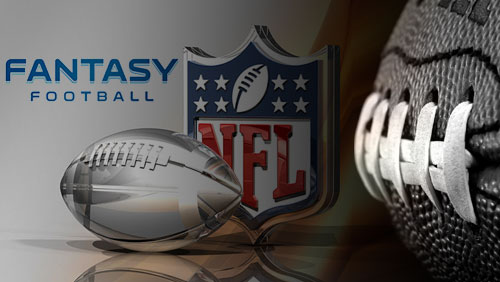 The Seattle Seahawks and the Green Bay Packers are a few days away from opening the 2014 NFL season. I’m excited. You’re excited. We’re all excited!
The Seattle Seahawks and the Green Bay Packers are a few days away from opening the 2014 NFL season. I’m excited. You’re excited. We’re all excited!
However, it’s not just about the games itself and the endless betting opportunities that we’re all excited about. The start of the NFL season also means the start of the NFL fantasy season, which in itself has taken a life of its own.
Its popularity has also given birth to daily fantasy sports companies like FanDuel and DraftKings to offer daily and short-term fantasy contests with stakes ranging from as low as $1 to thousands of dollars. Millions of players are getting involved in this business, something the Fantasy Sports Trade Association alluded to when it said that a site like DraftKings has around 41 million players in the US and Canada, all of whom use the site to play fantasy sports games for money.
The meteoric rise of fantasy sports has turned it into multi-billion dollar industry. Online fantasy football website FanDuel estimates that the industry of fantasy sports is worth $4 billion. That’s 4 with nine 0’s after it. Those numbers might surprise some segments of society but they’ve also caught the attention of well-reputed venture capitalists who see the enormous potential of fantasy sports as a legitimate and credible business protected by the Unlawful Internet Gambling Enforcement Act of 2006.
The bill says that fantasy sports is not gambling because it ‘has an outcome that reflects the relative knowledge of the participants, or their skill at physical reaction or physical manipulation (but not chance). And in the case of a fantasy or simulation sports game, it has an outcome that is determined predominantly by accumulated statistical results of sporting events, including any non-participant’s individual performances in such sporting events.’
Attorney Marc J. Zwillinger, the founder of ZwillGen PLLC, a law firm that represents FanDuel and other fantasy sports contest sites, wrote in a statement quoted by the Miami Herald, “Fantasy sports contests—whether season-long or daily—generally operate in accordance with the carve-out for fantasy sports under federal law.”
That’s a big reason why websites like DraftKings and FanDuel have become popular within the fantasy sports world, both from player and business points of view. Just last week, venture capital funding from the Raine Group LLC, a New York-based firm that invests in sports and lifestyle companies and other investors that include Redpoint Ventures, GGV Capital and Atlas Venture, made a $41 million investment on DraftKings.
It all points to an exciting prospect for fans of the NFL, but like everything else, wagering on fantasy sports is not a black-and-white picture. There’s a big gray area there that’s subject to a lot of different interpretations, chief among them is its legality on a state level. States like Florida and Kansas have laws in place that prohibit gambling on fantasy sports and yet those laws have rarely been enforced.
That could change in the coming years when the industry becomes bigger than it is today. Rapid growth and exposure has a way of drawing the attention of local authorities, especially if the business reaches new economic heights. With more and more outlets embracing pay-to-play fantasy sites like FanDuel and DraftKings, it’s bound to appear in a state’s radar, which could compel it to take action and impose its own laws. That’s not necessarily a bad thing because these states could follow in the steps of Maryland, which officially legalized the fantasy sports gambling business in 2012.
That’s the hope of all fantasy football aficionados like myself. While I do enjoy the free fantasy leagues I have with my friends and colleagues, the appeal of wagering money, even in small amounts, to become my own armchair general manager in the NFL is one of the reasons why I enjoy playing fantasy football.